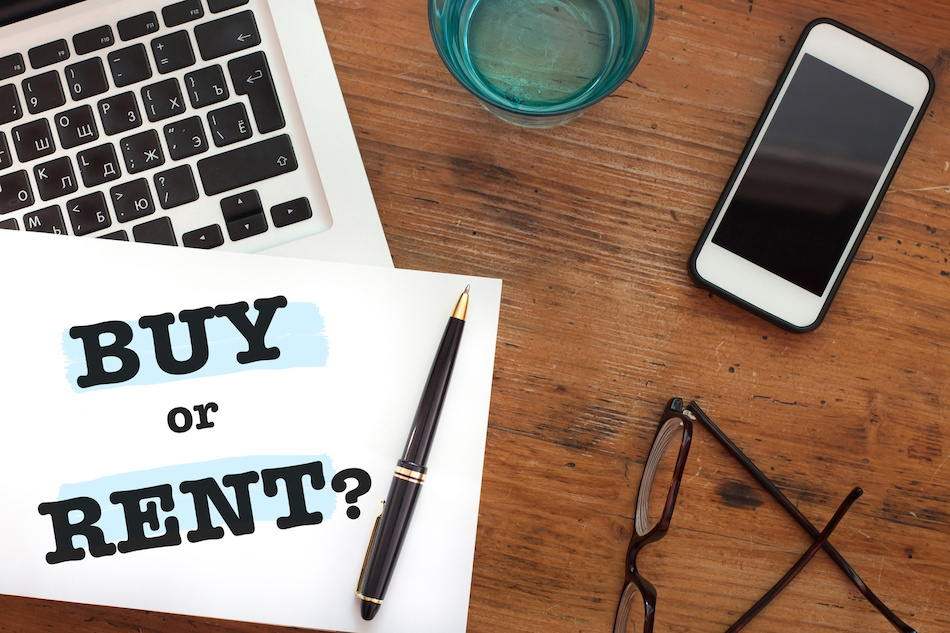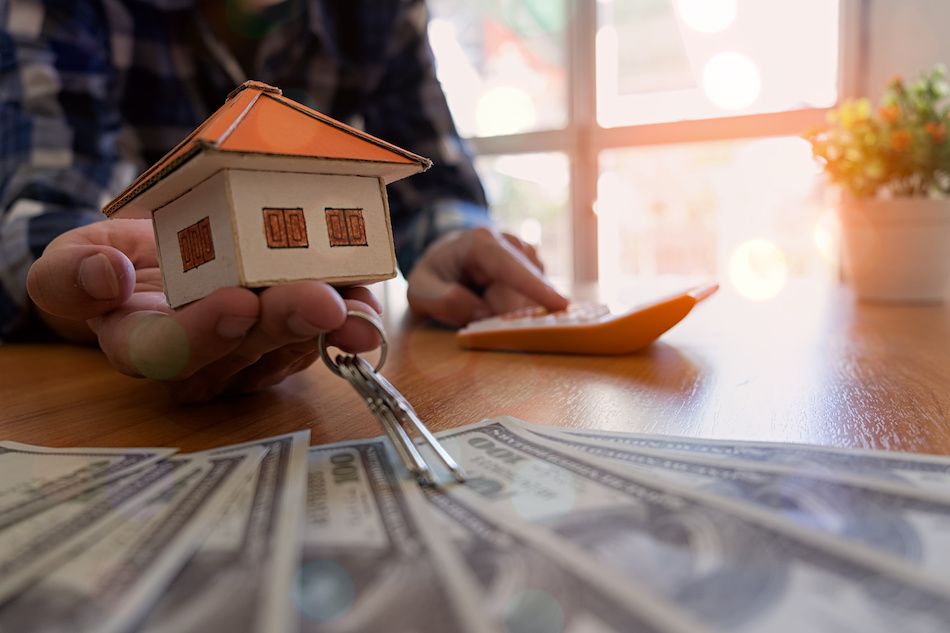Should I Buy or Rent a Home?
Posted by Justin Havre on Wednesday, September 26th, 2018 at 12:38pm.
 If buying a home seems like a faraway dream, it might be closer than you think. When you invest the time to consider the type of neighbourhood you need and what you can afford to pay, you may discover options to lower your housing costs overall. With this guide, you will understand the types of expenses you will pay to rent or buy, and receive tips to help you get into the real estate market.
If buying a home seems like a faraway dream, it might be closer than you think. When you invest the time to consider the type of neighbourhood you need and what you can afford to pay, you may discover options to lower your housing costs overall. With this guide, you will understand the types of expenses you will pay to rent or buy, and receive tips to help you get into the real estate market.
What to Know About the Responsibilities of Homeownership
Buying a home in your early 20s is an investment for the future. By doing the work now, you may be able to create a tidy passive income source that makes it easier to secure your financial future. If it is not right for you right away, being able to consider the financial obligation will help put you in a better position to buy years from now.
Costs to Rent a Home
Renting a home is often less expensive than buying one, but there are unique costs to shoulder. How much you have to pay relates to where you live and the type of home you are renting. If you are renting a unit intended for a single family, you may have to pay enough to cover the owner's mortgage payment, or more if the average rent is higher in the area. For a unit in an apartment building, several tenants may divide the cost of the mortgage for rent payments. Your rent payment remains the same for the term, but the landlord can increase it once you are due to renew your lease. Some provinces place limits on the amount a landlord can raise your rent. In addition, you should plan to pay a deposit to cover the costs of cleaning and any repairs after you move out.
Costs to Buy a Home
Buying a home represents a significant long-term investment. As such, compared to renting, the expenses are typically higher, especially at the outset. You should be prepared to pay for:
- Down payment (at least 5 percent, and possibly up to 20 percent of the purchase price)
- Taxes and closing costs
- Home insurance
- Utilities
- Upkeep and home improvements
- Preparation to sell the home when you are ready
Once you close on the loan, you will also have a mortgage, which may be fixed or variable in monthly payments. Keep in mind that whichever loan you have at the beginning is only effective for the first term, which could last from 6 months to 10 years. After that term is concluded, you will refinance the loan or pay it off. If you have accrued significant equity during that initial term, you may have better mortgage options for the second term.
Homeowner Living Expenses
Advertisements often compare the costs of a mortgage to a rent payment, but homeownership has more costs involved. The biggest upfront expense is often the down payment, which is typically about 10 percent. You may be able to qualify for loans with a down payment of only 3-3.5 percent. After you make the down payment and pay closing costs for the loan, you will pay for the mortgage and property taxes, and possibly for private mortgage insurance as well. This does not include upkeep or improvements to the property. Factor these estimates into your calculations to determine if you can reasonably handle the regular costs.
There are certain types of expenses you must pay for whether you own a home or are renting a home or unit in a larger building. The price of food may vary based on where you live, so living in a city might make your grocery and dining-out expenses higher. You will pay for transit whether you own a car or rely exclusively on public transit options. Wherever you move, you will need to pay for some costs related to moving, such as boxes and professional moving services. You can often keep these expenses down if you are on a tight budget, but you should consider them costs in common.
Is Buying Better Than Renting?
For a lot of people, buying a home is their ultimate goal for housing. When you own a home, you accumulate equity in it through mortgage payments and home value appreciation over time. You can also customize it to your choosing from renovations to smart technology additions. Renting a home means that you are helping someone else gain that equity, and you do not have a share in it. However, it may be difficult to save up the money to buy a home, especially for the initial down payment and closing costs.
How to Lower Expenses of Home Buying

Fortunately, there are ways to lower the overall costs of buying a home, especially if you have the ability to make choices. People with higher income and better credit can often select from a variety of mortgage loans, so they can pick the one with the most favourable terms. You might decide that a variable rate mortgage affords you a lower interest rate and payment that you can manage. If you have a Registered Retirement Savings Plan (RRSP) and you qualify as a first-time home buyer, you should research the Home Buyers' Plan. An HBP gives you the option of withdrawing up to $25,000 from your RRSP to put toward a down payment. You are expected to pay it back, but that initial sum may make it easier for you to get into your first home.
Choosing to rent or buy a home is an intensely subjective decision based on your finances and your future plans. If you intend to stay in place for several years and you have the funds to spare, buying is a wise financial investment. With some assistance to help buyers get into their first homes, you can decide if you should rent for a time, or jump into the West Calgary real estate market soon.
Questions to Ask Before Transitioning from Renter to Homeowner
hen picturing the typical home buyer, what most clearly comes to mind may be someone who's well-established as an adult, well into their working life. However, this image of a home buyer doesn't quite fit the bill for many a prospective homeowner: There are home buyers out there who have only just gotten out of college. What do these inexperienced buyers have ahead of them? Ask yourself these questions to determine whether or not buying a home in your 20s is right for you.
Am I Committed to the Location?
When renting a home or apartment, it's possible to pack up and move as soon as your lease ends. Buying a home, however, trades that flexibility for stability, and homeowners can expect to live there quite a bit longer. The average time that an owner lives in a home is about 13 years. Although many people decide to sell much sooner, it is wise to plan to live in a home you buy for at least five years. That way, the home's appreciation should be enough to cover the money paid in closing costs, plus the money needed to pay for the services of a real estate agent.
Is My Credit and Income Appealing to Lenders?
Although the stereotypical image of homebuyers is a couple in their 30s or 40s, lenders do not restrict mortgages to people who fit the image. The truth is that if you have a solid credit history and a good, predictable income, you may be considered a viable candidate for a mortgage loan. Keep in mind that lenders prefer you to have several years of responsible use of various kinds of credit, and consistent income for at least the past couple of years. Take a hard look at your credit report, and clear up any inaccuracies before you start the process. If you have great credit and consistent income, you can certainly apply to a lender and see what they say.
Can I Afford the Additional Costs of Homeownership?
Advertisements often compare the costs of a mortgage to a rent payment, but homeownership has more costs involved. The biggest upfront expense is often the down payment, which is typically about 10 percent. You may be able to qualify for loans with a down payment of only 3-3.5 percent. After you make the down payment and pay closing costs for the loan, you will pay for the mortgage and property taxes, and possibly for private mortgage insurance as well. This does not include upkeep or improvements to the property. Factor these estimates into your calculations to determine if you can reasonably handle the regular costs.
From Renting To Buying: What To Know
Not everyone who starts out renting a home wants to continue renting for the rest of their life, so it's important to know what goes into buying a home in order to get prepared early. For those who may be currently renting a home but are currently planning or may decide later on to buy a home of their own, here are some requirements all home buyers need to meet before they can do so:
- All buyers must be able to afford at least a 5% down payment if the buyer is using a first home mortgage. Buyers can also pay more than 5% if they choose.
- Buyers must be approved for their mortgage of choice. Preapproval is optional but encouraged to get before house hunting as it helps the buying process go more smoothly.
- All buyers must be able to afford their monthly mortgage payment. Getting mortgage approval will be a good gauge if this is possible.
If prospective home buyers can meet these three requirements, they will be well on their way to homeownership.
When is the Right Time to Buy?
Lots of people who think of buying a home ultimately decide to wait for more favorable circumstances. If you are still establishing your career, waiting for a year or two may dramatically improve the kind of home you could buy. Lenders have fairly strict limits on the amount of your gross income that can be taken up by monthly mortgage expenses and other debts, usually 28 percent and 43 percent, respectively. If you wait for your next big promotion, you could qualify to buy a bigger home in a better location.
Buying a home in your early 20s is an investment for the future. By doing the work now, you may be able to create a tidy passive income source that makes it easier to secure your financial future. If it is not right for you right away, being able to return to these questions will help put you in a better position to buy years from now.

